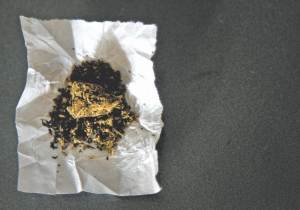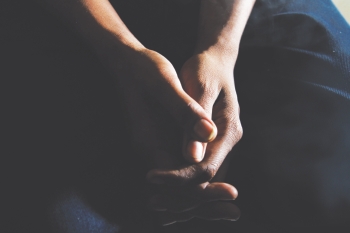| Home - Back Issues - The Team - Contact Us |
 |
| Volume 11 |Issue 07| February 17, 2012 | |
|
|
Special Feature A HAZY FUTURE? Anika Hossain
The names of victims of substance abuse and their friends mentioned in this article have been changed to protect their privacy. In our society some things are often hushed up. Mostly because people know little about, and feel extremely threatened by them. Substance abuse and addiction is probably on top of this list of taboos. To overcome our fear of the unknown, we come up with bizarre theories about this issue and proceed to swear by them until they are accepted as fact. Some common myths are: – There is nothing you can do about it. “Addiction is a disease, and like most diseases, it has a cure,” says Dr Ahmed Helal, who specialises in the treatment of recovering addicts. “Addicts are not bad people, they are simply victims of a crime. While it is possible to stop using addictive substances during the initial stages when the abuse begins, it becomes harder to do so as the addicts themselves find ways to deny or rationalise their habit and drastically underestimate the amount they abuse,” he enlightens us. According to Dr Helal, an addict can seek treatment at any point during the period of abuse, the earlier the better. It is not necessary to wait for a catastrophe for the healing to begin. If the addict refuses treatment, s/he can be forced into it and they will eventually cooperate when they realise they are better off without the substance. “If the addict relapses, it is just a part of the gradual healing process,” says Helal, “there is no reason to be discouraged.” Now that an expert has dispelled all the folklore surrounding abuse, let us look at how and why it begins in the first place and who better to tell us but addicts themselves. “I started abusing drugs in 2003,” says Arif Hossain, who is now in his thirties. “Before that, I hated cigarettes and alcohol, although most of my friends were smokers and drank regularly. When I was in university, I met an old school friend, who convinced me to try smoking weed (marijuana). At the time I was in a band and idolised Jim Morisson and Eric Clapton who happened to be users. I thought it would be cool to try it out and see what the fuss was about,” says Hossain. Before he knew it, Hossain was smoking marijuana two to three times a day. “It was available everywhere, near my house, near my university and my school friend and his crowd always had some on them. In 2006, the same crowd introduced me to Phensedyl which I loved because at the time, it helped me get away from worries about my poor grades and conflicts between my parents at home. Since I didn't have an income, I couldn't always afford this drug, so I tried other things like cough syrups and other over- the- counter medication to get high, and I did this on my own,” Hossain tells us. At the time, addiction had become a major source of concern and drug peddling was rampant. “There were awareness programmes about it on TV but I didn't think they were for me. However, at that point people started noticing changes in me, they said I had become an introvert and was uncommunicative. My performance in university had been badly affected.”
The more the habit continued, the worse his symptoms became. Hossain realised he had physical and mental problems such as significant hair and weight loss, depression, anxiety and a perpetual feeling of hopelessness. “But instead of quitting drugs, I decided the combination of weed and Phensedyl was bad for me so I started using yaba, which everyone around me seemed to be using as well. Initially it lifted my spirits and I felt better and more confident but that only lasts a few hours, when I crash, I become even more depressed and paranoid.” Hossain is now 16 batches behind in university. He uses all his tuition fees on drugs. He never received professional help and although he claims he is using less frequently now, he is still addicted to yaba. “My mouth is always dry, I can't eat, I can't sleep…” he trails off. Tehrim Kabir has a similar problem and has had it for a while. “I started taking marijuana and Phensedyl when I was in high school,” he says. “I would use all my pocket money, but sometimes that wasn't enough, but since most of my suppliers were my friends, they would let me pay later. I hid my symptoms well, and no one in my family guessed what I was doing. Sometimes they said I had gotten quieter, but they weren't concerned.” Kabir graduated to heroine when he barely graduated from high school. “Snorting heroine was the fastest way to get high so that's what we do. During my university days, my debts started to pile up and I was in trouble.” He went to friends and family asking for money and lied about why he needed it. That is when his family realised his behaviour was odd. He still spends hours, sometimes entire nights in the bathroom, he sleeps most of the time and is extremely inquisitive and talkative when he is awake. He is paranoid when he is using and cleans everything including his bar of soap untill his hands are raw. He has been sent to rehab several times, but he relapses as soon as he is released. Kabir hasn't completed university. He is married but his marriage is an unhappy one. His debts keep piling up, and his family has given up hope. “Unfortunately, loved ones seem to give up after a while,” says Dr Ahmed Helal, “I urge them to not give up hope. When symptoms of abuse are recognised at the onset, curbing the habit becomes much easier. Each drug has a set of symptoms to watch out for.” According to Dr Helal, those who abuse marijuana will have glassy red eyes, smoke more, talk loudly and inappropriately, sleep more and experience a loss of interest, weight gain or loss. Those taking stimulants such as yaba (amphetamine), cocaine or crystal meth will have dilated pupils, will experience hyperactivity, euphoria, anxiety, irritability, talk excessively which is followed by a period of depression, they will experience excessive sleep at odd hours, weight loss, they may go through long periods of time without sleep or food and will have a dry mouth and nose.
Those taking inhalants (glues, aerosols and vapours) will have watery eyes, impaired vision, memory and thought, headaches and nausea, secretions from their nose and rashes around their nose and mouth. They will look intoxicated, drowsy and will be anxious and irritable. They will also experience changes in appetite and have poor muscle control. Those addicted to heroin will have contracted pupils which will have no response to light, they will often bear needle marks on their arms, sleep at unusual hours, sweat, cough and twitch excessively, vomit and lose their appetite. “When they are brought to us, whether willingly or by force, we follow three stages of treatment,” says Dr Helal. “The first is detoxification. Every drug has a toxic substance that alters brain functioning. By keeping the addict away from their drug for a period of two weeks, we rid the brain of this toxic substance. We do this either by prescribing medication or by simply taking away the drug,” he says. “Once this period is over, the addict goes through a withdrawal phase, when his body craves the drug,” continues Dr Helal. “This is the toughest phase of treatment during which they experience cramps from head to foot, headaches, nasal fluid flow, excessive salivating and even temporary blindness.” After this phase, the addict gets some insight into the effect of drugs on their body and psyche and often, those who were forced into treatment, begin to cooperate. “We then introduce them to the final phase, which is the rehabilitation process, during which they receive psychosocial counselling. We would also like to provide financial rehabilitation, but unfortunately our resources are limited. We need the media to campaign more against addiction and support from both the government and the private sector to make this happen.” After these three stages, the friends and guardians of the addict will take over, and help them start anew. If they relapse, they must begin the whole process from phase one. “My friends are addicted to yaba, and they have changed completely,” says Mehran Rahman. “I used to try to help them, but now I am disgusted with their habits. I would tell their parents but I don't think they will react the way they should. They will yell and scream but at the end of the day, they won't get them any help, they will either send them away from home or hide their addiction. So I keep it quiet.” What we must remember is that hiding someone's addiction will not make it go away. “Addiction can cause delusions, hallucinations, personality disorders and emotional disorders. More importantly, it may reduce all inhibitions and render a person violent enough to commit murder,” says Dr Helal. If you or anyone you know is abusing, please come forward and get help, before the damage becomes irreparable. Copyright
(R) thedailystar.net 2012 |
||||||||||||


